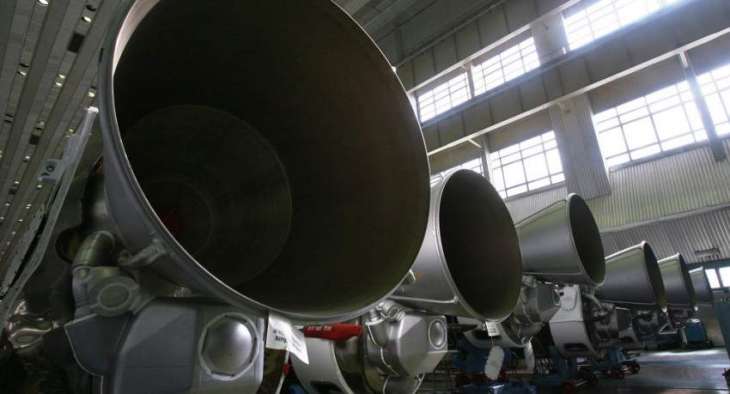Russia's Proton heavy carrier rocket turned out to not be as harmful to the environment as it was believed to have been, as an assessment on the outcome of the missile launches that was conducted over the past 11 years showed, the Khrunichev State Research and Production Space Center, the manufacturer of Proton, told Sputnik
MOSCOW (Pakistan Point News / Sputnik - 18th September, 2019) Russia's Proton heavy carrier rocket turned out to not be as harmful to the environment as it was believed to have been, as an assessment on the outcome of the missile launches that was conducted over the past 11 years showed, the Khrunichev State Research and Production Space Center, the manufacturer of Proton, told Sputnik."According to the results of the long-term (2008-2019) environmental follow up of Proton launches, which was conducted jointly by the Russian and Kazakh sides, it was concluded that the anthropogenic impact [of the launches] on the environment did not exceed the acceptable [levels]," the Khrunichev Space Center said.
Unsymmetrical dimethylhydrazine (UDMH) is often used in hypergolic fuels for rocket and space technology, and is notably utilized for the Russian Proton rocket.
Proton rockets have been in operation since 1965, and up until this point, there have been 421 launches. Although a significant disadvantage of UDMH is its high toxicity, environmental safety and environmental impact issues were not a priority when the launch system was designed. For this reason, the decision to minimize the environmental damage from the Proton carrier was not considered until the 1990s.
The demand for the Proton rocket in the international commercial market and its relevance in solving government problems prompted the launch system to be modernized to maintain its competitiveness. During the modification of the Proton-K rocket, the tasks to increase the level of safety and reduce its environmental impact, along with the goal of increasing energy characteristics, were set. All of this was achieved in the modernized Proton-M launch system, which has undergone four stages of "upgrade" and is now in operation.
One of the main goals for the engineers and designers of the rocket was to solve the problem of maximizing the use of fuel in tanks, since, by the end of the first-stage of flight, hundreds of Pounds of UDMH remained unused in the fuel tanks of Proton-K rockets. Unspent fuel was released and spilled to the ground, which caused environmental concern and determined the subsequent negative attitude toward the use of this carrier.
As a result of theoretical and experimental studies, the Khrunichev Center was able to implement technical solutions that allowed the full use of the Proton's fuel reserves, and this almost nullified the volumes of components found on the ground by experts in the areas where the rocket's first-stage accelerators fell.
According to the Khrunichev Center, the complex assessment showed that the Proton-M does not affect the environment more than environmentally friendly kerosene-fueled rockets, and in actuality has an even lesser effect.
The frequent Proton rocket failures, especially during the early 2010s, were another problem that triggered a strongly negative reaction by residents living in areas where the carriers' parts fell. The Proton's last accident occurred in 2015 during the rocket's third stage, that is, when only very few metal parts of the carrier reach the surface of the earth, not to mention the remnants of fuel. Since then, the Proton rocket has completed 15 successful launches without major accidents.
As the Kazakhstan Defense Ministry's Aerospace Committee, Kazcosmos, told Sputnik, within a meeting of the Russia-Kazakhstan Intergovernmental Commission on Baikonur Cosmodrome on November 24, 2014, the parties approved recommendations for a phased reduction of Proton rocket launches beginning in 2016, in order to reduce their environmental impact on Kazakhstan.
Currently, the Khrunichev Space Center's book orders include more than 20 Proton rocket launches up until 2025.
In 2019, three Proton-M missiles were launched and three more launches are scheduled to take place before the end of the year. The next commercial launch of a Proton-M carrier rocket loaded with the European Eutelsat 5 West B communication satellite and the US Mission Extension Vehicle-1 will take place from the Baikonur Cosmodrome on September 30.
The Angara heavy rocket, which uses environmentally friendly fuel components oxygen and kerosene has been developed at the Khrunichev Center to replace the Proton rocket.




